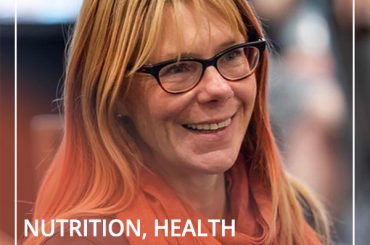Dr. David Fawcett gives reassurance and encouragement for beginning alcohol treatment.
If you’re on the verge of beginning alcohol addiction rehab, you’ll want advice. At this point you won’t know much. Should you learn from someone who completed alcohol treatment? What about a doctor who leads the rehab treatment?
If you learn anything from Dr. David Fawcett, you’ll learn the best of both perspectives. He’s an addiction expert (working at Seeking Integrity) who himself once completed addiction treatment and now walks a long-term addiction recovery journey. These days he hosts the “Chemsex” meeting here at In The Rooms, and he lent some keen insight to help us explain what to expect in alcohol rehab just recently.
ITR: When someone is beginning addiction treatment, what are they (in your experience) afraid of?
DF: For people who have never been in treatment, there’s a lot of apprehension about what to expect. This almost always involves patients’ fear of losing control over their access to substances or behaviors which have helped them cope in their lives. Addictions are usually about numbing or dissociating from uncomfortable feelings. Addictive behaviors are the primary tool that help us do this. When we no longer have access to our substances or behaviors, we fear we won’t control our feelings.
People need to know that treatment staff are very skilled at keeping clients both safe and comfortable. In fact, most staff at treatment centers are in recovery themselves so they understand these fears well. People should be reassured that, even though they may feel uncomfortable without their coping mechanisms, surrendering to these fears is an important first step toward acceptance. It’ll also help move forward to a new life which will be much more rewarding than living with an active addiction.
ITR: What advice would you give someone who’s not sure if they should undergo addiction treatment?
DF: It is normal for an addict to avoid taking that necessary first step. I tried doing almost anything to avoid looking at my drinking and drug use. I got a second job, and I got a cat. Later I became a vegetarian, considered moving to the west coast and even got a master’s degree. Of course, none of that resolved my addiction. What would I recommend for anyone considering treatment? Take a hard look at the times when they’ve tried (and failed) to control their behavior, at the progression of their using and/or acting out, at the number of lines in the sand (“I’ll never do that…”) they’ve made and then crossed, at the consequences for their jobs, responsibilities, health, and finances, and at the negative impact their behavior has had on people they care about.
Addicts live in a bubble of rationalization and selectively see what they want to see and believe. Once in a while, something happens to burst that bubble. That creates a teachable moment when they are open to making changes – that is the time to take action toward recovery.
ITR: What are the misunderstandings about addiction treatment that you’ve seen in your career?
People have many misconceptions about treatment. Most programs now operate based on addiction research, including recognizing and addressing the role of trauma in developing addictions. Staff are highly professional, and while they may be confrontational at times, they’re trained to compassionately provide assistance. They’ll meet the client where they are, creating a safe “container” where clients can begin their healing process.
Programs like Seeking Integrity recognize how easy it is to transfer addictions, and so they help clients understand substance abuse but also other behaviors that can become problematic also: food addiction, sexual compulsivity, porn addiction, and others. Skills such as meditation and mindfulness can often help clients a lot. Good treatment programs recognize that addiction is a family illness. They’ll provide both education and support for affected spouses and family members. Finally, people should recognize that treatment is not a vacation or confinement, but rather a safe place where you can put down a strong foundation for a lifelong journey of recovery.
What Now?
Maybe, you can now worry less about beginning alcohol addiction treatment. You can learn more about the process of alcohol addiction rehab, or about all the alcohol treatment options. Of, if you’re not sure whether you or a loved one face alcohol addiction, learn the warning signs.
Stick around In The Rooms to learn more about starting alcohol addiction recovery, or to visit our directory of alcohol rehab centers. If you start learning today, where will you take you recovery tomorrow?







